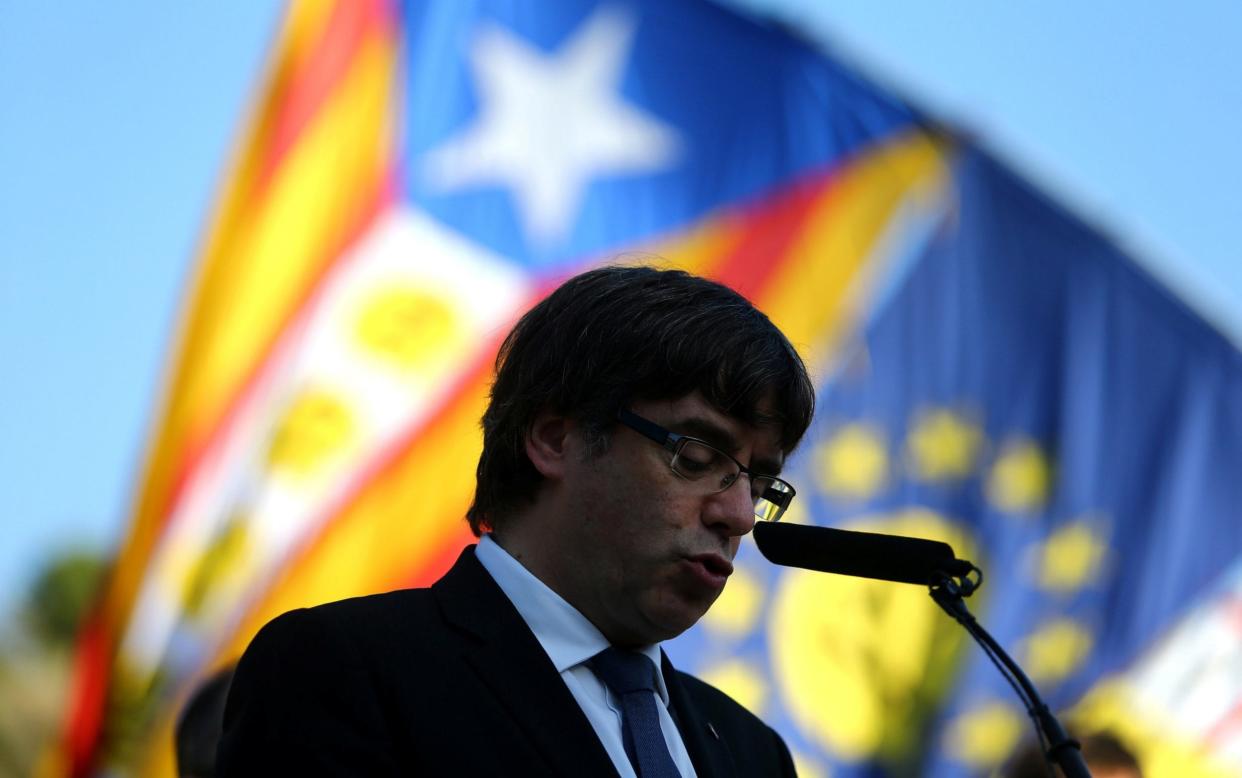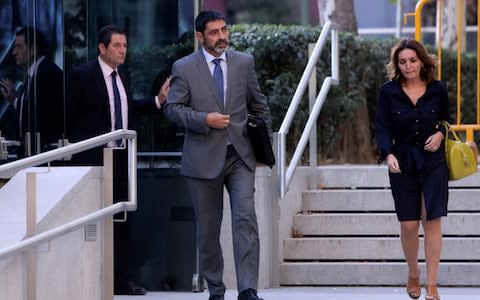Madrid set to impose direct rule on Catalonia as independence deadline passes

The Spanish government has warned Catalan leader Carles Puigdemont he faces his final chance to relinquish independence within three days or it would trigger Article 155, the so-called 'nuclear option' which would override Catalonia's autonomy.
Prime Minister Mariano Rajoy had set a deadline of 10am local time yesterday for Mr Puigdemont to clarify whether or not the autonomous region had made a unilateral declaration of independence last week. The Catalan president responded with a four-page letter that did not directly answer the question but instead stressed a mandate for independence and called for urgent dialogue.
The Spanish government had made clear that anything less than a “No” would set in motion Article 155, a never-used constitutional tool allowing it to effectively suspend autonomous powers and rule directly from Madrid.

That is now set to be applied on Friday, if Mr Puigdemont does not reverse his position during a further three-day grace period.
The Spanish deputy prime minister, Maria Soraya Saenz de Santamaria, said the government interpreted his response as a confirmation that declaration had indeed been declared. Demanding Mr Puigdemont retract this by Thursday at 10am, she insisted it was "in his hands to avoid the next steps".
Mr Puigdemont, who had been under heavy pressure from independence hardliners to confirm an abrupt split from Spain, had called for an urgent meeting with Mr Rajoy in his letter.
He said the banned independence referendum had returned a mandate for an independent state but insisted the regional government’s priority was a negotiated solution, eyeing a two-month period for dialogue.

Mr Rajoy responded with a letter of his own, in which he told Mr Puigdemont he still had a chance to respond in a "clear and simple way” to Madrid’s request. If he did not do so, he “will be the only one responsible for the application of the constitution,” he said.
Alfonso Dastis, the Spanish foreign minister, said “the most radical influences had prevailed” in Mr Puigdemont’s decision. But the Catalan president’s letter did not go far enough to satisfy the CUP, the hard Left partner that is crucial to the Catalan government’s parliamentary majority, which is now pushing for a clear affirmation of independence on Thursday.
“The CUP would have sent a very different letter,” said parliamentarian Mireia Boya.
Further adding to tensions yesterday, the Catalan police chief and the leaders of two major pro-independence groups appeared in court in Madrid to face allegations of sedition. The Spanish attorney general has asked the judge to remand Major Josep Lluis Trapero in custody, with judicial sources quoted by La Vanguardia citing fears he could continue to give orders to the Catalan force to subvert Madrid's clampdown.

The judge did not agree to the attorney-general's request to take Major Josep Lluis Trapero into custody, but imposed the conditions he surrender his passport and report to a court every 15 days. The same conditions were imposed on another Catalan police official.

 Yahoo News
Yahoo News 
